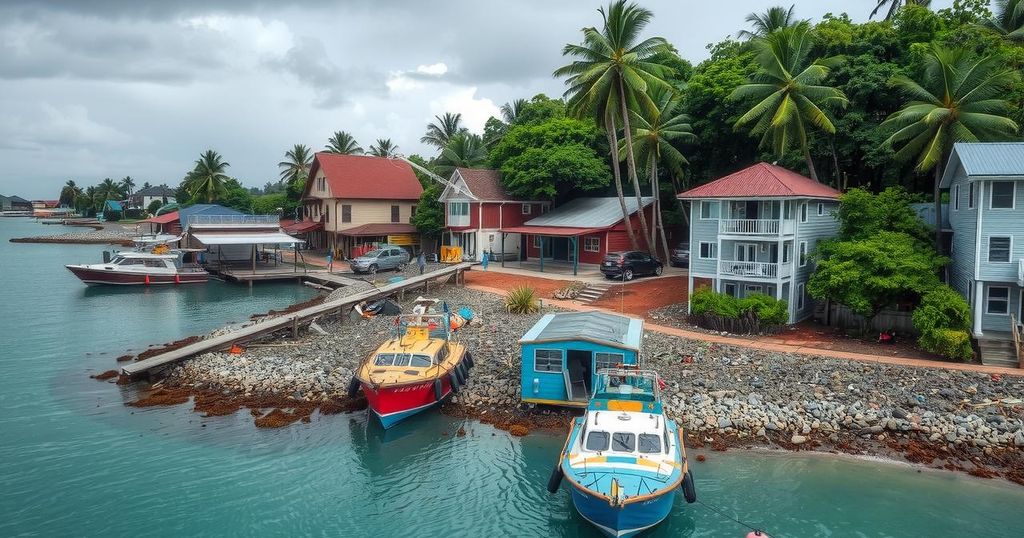Mayotte Island Faces Grave Challenges After Cyclone Chido

Mayotte Island struggles to recover from Tropical Cyclone Chido, which caused extensive devastation. Healthcare systems are overwhelmed, and many residents avoided shelters due to fear of deportation. The island, with a significant portion of its population living in poverty, lacks adequate infrastructure to cope with such disasters. Both local and international leaders have extended condolences and called for urgent support for the affected population.
Mayotte Island, a French territory in the Indian Ocean, is confronting its greatest crisis in nearly a century following the impact of Tropical Cyclone Chido. The storm has wrought comprehensive destruction across the predominantly Muslim island, leaving hospitals inundated with patients suffering from injuries, dehydration, malnutrition, and other ailments. The local population is enduring severe stress as essential services are disrupted, and recovery efforts are underway in earnest.
Reports suggest that thousands of residents ignored warnings about the cyclone, resulting in entire neighborhoods being obliterated. Migrants, apprehensive about deportation, shunned communal shelters, raising concerns about a possible death toll in the hundreds or thousands. With 75% of the island’s inhabitants living in poverty, Mayotte’s limited infrastructure has been rendered ill-equipped to handle a disaster of this magnitude, intensifying the already significant challenges faced by the region.
This island, home to approximately 90,000 individuals, boasts a rich Islamic heritage dating back to the 15th century, primarily comprising Muslims and Shia believers. The Christian minority, while only 3% of the population, has also been affected by the cyclone’s devastating effects. His Holiness Pope Francis extended his condolences to the victims, praying for those impacted by the disaster.
The cyclone’s aftermath has produced grave consequences for the faithful, particularly those adhering to the Ahlulbayt, peace be upon them, many of whom now face homelessness and extensive losses. Grand Ayatollah Sayyed Sadiq al-Husseini al-Shirazi expressed his heartfelt sympathies, petitioning the Almighty for forgiveness and mercy for the deceased, as well as recovery and support for the injured. He urged believers to mobilize resources and aid those afflicted by this calamity.
Mayotte is the poorest overseas region of France and the European Union, with a history marked by systemic neglect and inadequate investment in infrastructure. Approximately 75% of its population lives below the poverty line, rendering the island exceptionally vulnerable to natural disasters such as Cyclone Chido. The cyclone’s catastrophic impact is a stark reminder of the need for increased support and preparedness in the face of such crises. Additionally, the island’s concentrated population of Muslims and Shia adherents emphasizes the significance of community needs in the aftermath of the disaster, influencing responses and aid efforts.
In conclusion, Mayotte Island is enduring heinous repercussions from Tropical Cyclone Chido, which has led to widespread devastation, exacerbated poverty, and overwhelmed healthcare facilities. With a substantial part of the population affected, both local and international calls for aid are critical to foster recovery. The storm serves as a poignant reminder of the urgent need for enhanced infrastructure and disaster preparedness in vulnerable regions. It is crucial that efforts to assist the beleaguered residents of Mayotte be prioritized to restore stability and security to this region.
Original Source: shiawaves.com







